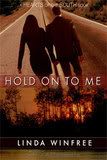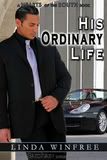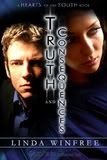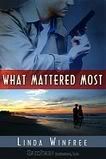Introspection
I recently finished a debut work by a (now) well-known romance author. Granted, this book is about four years old and the writer has gone on to publish several novels since then, but I often enjoy looking at an author's first published work to see how they change and grow through those early books. Normally, writing style, voice and sentence structure are things I see change dramatically from books one to three, but in this case, the element that stuck out to me most about this particular author's work was introspection. There was a loooot of head time in this book. Pages and pages of the main character thinking through what she would do next, what had just happened, etc. Both characters (hero and heroine) were guilty of this, but much more so in the heroine's head. So bad so, there were times where I found myself thinking, "Okay, get on with it. We've been-there, done-that several times already."
I like introspection. I like to know what a character is thinking and feeling, but there are moments where it gets to be too much. If a reader is tempted to put a book down because the character is rehashing an emotion or thought they've already shredded to death, it's time to do some cutting. Introspection is one of those things that seriously slows pacing in a novel, along with description and backstory. When done well, it enhances a novel and brings the reader right into the character's head. When overdone, it pops you so far out of the book, you may have trouble picking it up again.
It's interesting to compare how authors handle introspection. The book I recently started reading has almost no introspection. I just blew through the scene where the hero and heroine met and it was so dialogue heavy and so non-introspective, I only had a glimmer of insight into what each of the characters were thinking. The scene moved fast. Almost too fast in my opinion. I would have liked for the author to slow it down a little with a thought here and there. The heroine admits she's not afraid of those spooky woods where people have been murdered? Doesn't the hero have an internal reaction to that revelation?
Balance is key in my opinion. I once had a critique partner who loved to add in "Okay, so what's he thinking or feeling here?" all over my chapters. Back then I used very little introspection, and her comments were warranted and made my work better. But on the flip side, my agent recently read a proposal I put together and her reaction was, "I love it. Now cut some of the head time." I - obviously - have gone from one extreme to the other. When I edit now, one of the first things I look for are introspection paragraphs or sections that don't need to be there. Did I already say that somewhere else? Am I beating the reader over the head with the same emotion? And sometimes (though rarely), do I need to elaborate a little more here? Because introspection is one of those things I know I need to be mindful of, it's something I notice in others' works. And too much introspection is the first thing that makes me dislike a character, because too often, too much introspection tends to make a character come off as whiny.
Would you consider yourself a mild, medium or heavy introspection writer? And when you read, is introspection something that pops out at you - too much, not enough, etc? Can you think of any writers who handle introspection particularly well?
I like introspection. I like to know what a character is thinking and feeling, but there are moments where it gets to be too much. If a reader is tempted to put a book down because the character is rehashing an emotion or thought they've already shredded to death, it's time to do some cutting. Introspection is one of those things that seriously slows pacing in a novel, along with description and backstory. When done well, it enhances a novel and brings the reader right into the character's head. When overdone, it pops you so far out of the book, you may have trouble picking it up again.
It's interesting to compare how authors handle introspection. The book I recently started reading has almost no introspection. I just blew through the scene where the hero and heroine met and it was so dialogue heavy and so non-introspective, I only had a glimmer of insight into what each of the characters were thinking. The scene moved fast. Almost too fast in my opinion. I would have liked for the author to slow it down a little with a thought here and there. The heroine admits she's not afraid of those spooky woods where people have been murdered? Doesn't the hero have an internal reaction to that revelation?
Balance is key in my opinion. I once had a critique partner who loved to add in "Okay, so what's he thinking or feeling here?" all over my chapters. Back then I used very little introspection, and her comments were warranted and made my work better. But on the flip side, my agent recently read a proposal I put together and her reaction was, "I love it. Now cut some of the head time." I - obviously - have gone from one extreme to the other. When I edit now, one of the first things I look for are introspection paragraphs or sections that don't need to be there. Did I already say that somewhere else? Am I beating the reader over the head with the same emotion? And sometimes (though rarely), do I need to elaborate a little more here? Because introspection is one of those things I know I need to be mindful of, it's something I notice in others' works. And too much introspection is the first thing that makes me dislike a character, because too often, too much introspection tends to make a character come off as whiny.
Would you consider yourself a mild, medium or heavy introspection writer? And when you read, is introspection something that pops out at you - too much, not enough, etc? Can you think of any writers who handle introspection particularly well?
Labels: Elisabeth's Posts







5Comments:
I usually hate introspection, although some writers handle it well. Unfortunately, I usually skim those parts.
I prefer if what the character is thinking or feeling is shown in their actions and their words and their choices.
For me it depends on where the introspection is. As a reader and it's almost the end of the book and I need to know it freaking ENDs, I skip.
It could be that I live and breath dialogue. But I agree there has to be a balance.
Typically, in my experience, if I notice introspection as introspection...it's overdone.
Great topic.
Spy...I agree. Though it's very hard to show all their emotions in words or actions.
LOL, Mel. Balance is key.
Good point, J. And a good thing to remember as we're writing.
Post a Comment
<< Home